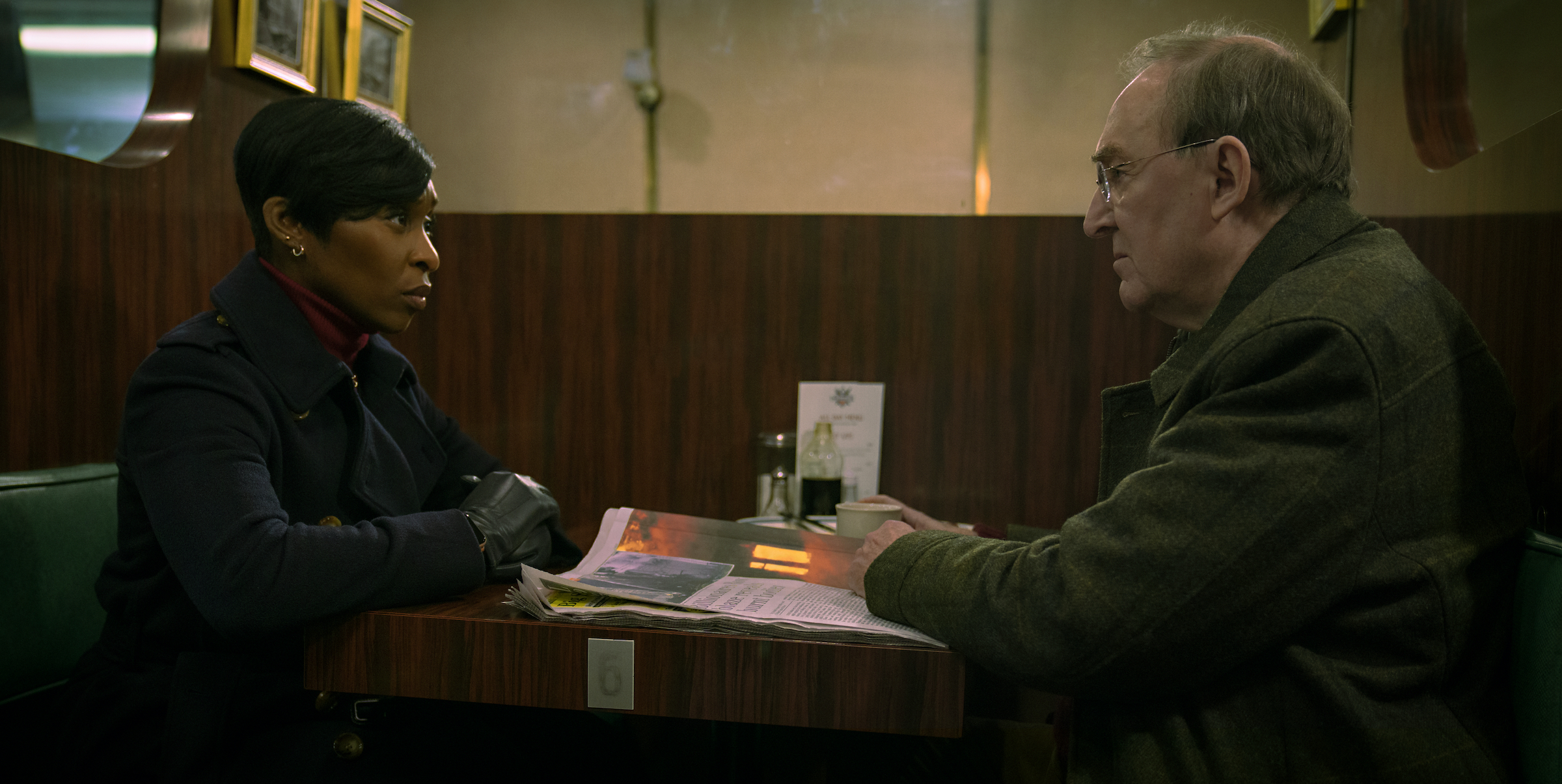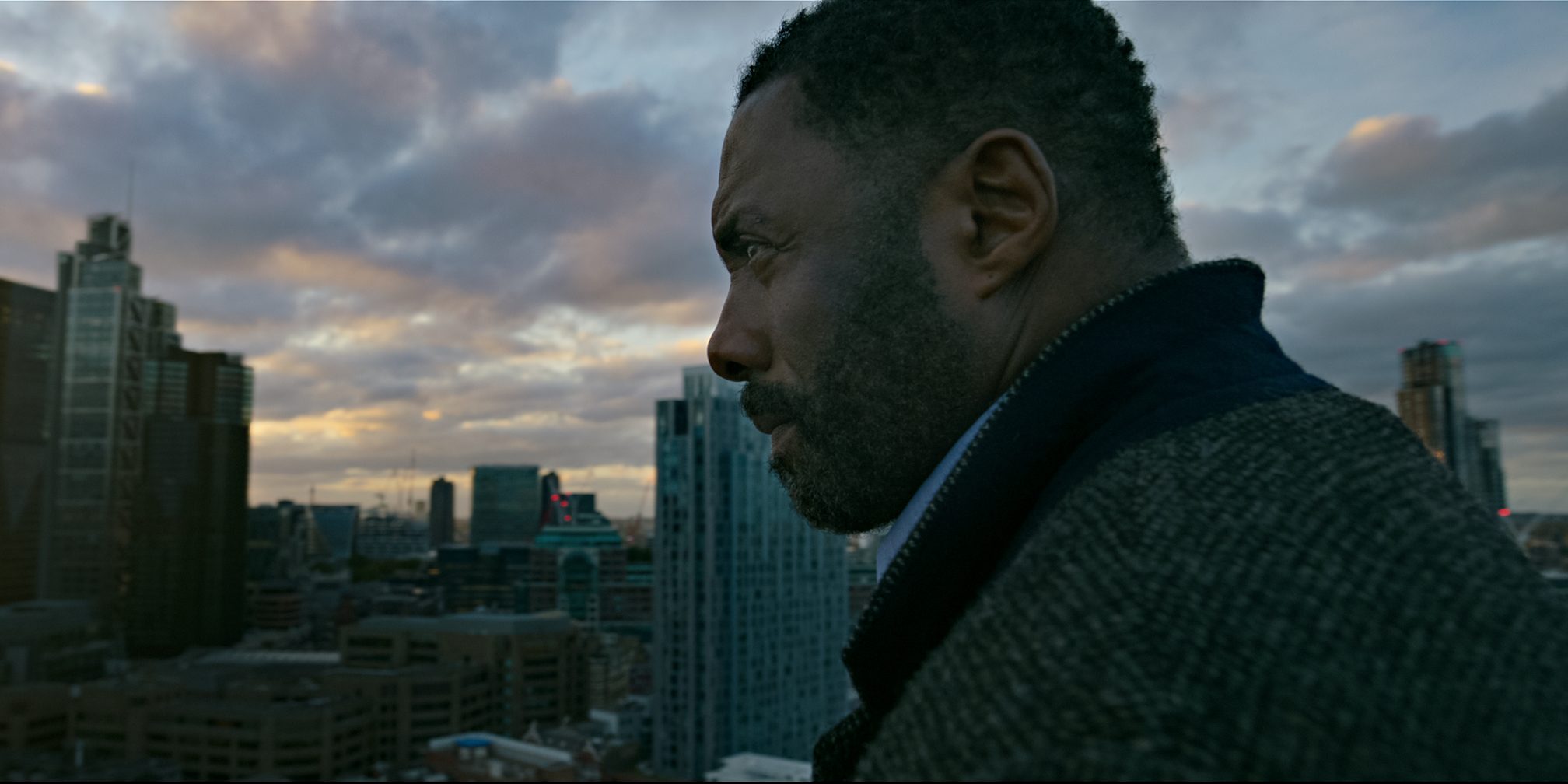The crime thriller Luther: The Fallen Sun—starring Idris Elba in the titular role as former Detective Chief Inspector (DCI) John Luther—is dark and rich, much like the hit BBC show on which it is based.
The film, in select theaters on Friday and streaming on Netflix on March 10, follows Luther’s fall from grace and arrest, subsequent jailbreak, and pursuit of David Robey (Andy Serkis), a tech billionaire turned serial killer who uses in-home technology to surveil and blackmail his victims.
“He’s probably figured out that in the right circumstances, the fear of shame, the fear of being called out, the fear of being caught is way more powerful than the fear of death,” Luther tells DCI Odette Raine (Cynthia Erivo) of the villain he’s after.
The sentiment evokes the mood that infused the TV series, which originally aired in 2010. In the show, we are introduced to a version of Luther consumed by shame and guilt over letting a man named Henry Madsen fall to grave injury—even though Madsen was a pedophilic serial killer. The movie, which picks up shortly after the series ended in 2019, continues the story of Luther’s obsessive drive, further drawing out the grim worldview of Neil Cross, who created and co-wrote the show and returned to write the film.
“Basically, they allowed us to make Luther more itself, not less,” Cross said in the movie’s press notes.
Elba and Cross began discussing the potential for a movie early in the Luther-verse, around the end of the show’s first season. The disgraced DCI has never been seen outside of London until now, when he stows away to Norway to stop Robey’s gruesome “red room.”
Who is Luther?
When we meet Luther in the film, he is hot on the case of Callum Aldrich, a victim of David Robey’s, and doing his job a bit too well for Robey’s comfort. So the serial killer releases a dossier of incriminating information to the press, sending Luther to prison.
“He stands charged with a shocking catalog of crimes including breaking and entering, suspect intimidation, tampering with evidence, bribery,” says a reporter in the movie. “A litany of alleged vigilante activity that critics say attest to a man who felt entitled to take justice into his own hands time and time again.”
The news report mentions that Luther had recently apprehended husband and wife serial killers Jeremy and Vivian Lake, the main antagonists of Luther’s fifth and final season. The arrest in Luther: The Fallen Sun comes from the end of season five, when Luther’s tendency to skirt the law to solve crimes finally catches up to him.
From day one—the first episode of the first season—Luther has bent the law to his favor. When the series begins, he has just been reinstated to the police force after a months-long investigation into the Henry Madsen case. He’s already on thin ice, but in that same episode, he breaks into a suspect’s home to find and steal the murder weapon to prove a theory.
Yes, Luther serves the law, but he does so how he sees fit, a bull in the china shop of the Serious Crimes Unit. That singular moral compass reappears in the movie, in which Luther is simultaneously working to solve the David Robey case and on the lam from the law himself as a prison escapee.

What does the movie share with the series?
After Luther breaks out of prison, there comes a brief but glorious scene of him standing pensively on a roof (a favorite pastime of his) at sunrise, looking out over the London skyline—back in his trademark charcoal coat and red tie. Fans of the series will instantly recognize the look.
The movie’s creative team—including Cross and director Jamie Payne who also directed all of Luther’s fifth season—wanted to both cater to longtime fans of the show and welcome new viewers. “It was important that we respect and honor both audiences equally,” Cross said in the press notes. “That meant finding a way to acknowledge what had gone before without getting ourselves or anyone else weighed down by it.”
Key to that, Cross continued, was the history between Luther and Detective Superintendent Martin Schenk (Dermot Crowley), Luther’s boss and close friend in the show. Schenk—the only main character other than Luther to appear in all five seasons of the show—is also the only character to cross over into the movie. (Crowley returns to play him as well.)
“The tragedy,” Schenk counsels Luther in the movie, “is that you are a better man than you ever allowed yourself to be,” another sentiment that spans both mediums.
As the Luther: The Fallen Sun credits roll, a familiar song plays. “Paradise Circus,” by Massive Attack featuring Hope Sandoval, the theme to the original series, has been reimagined. Massive Attack’s Grant Marshall collaborated with Stew Jackson (collectively known as POST) and incorporated new vocals from Ghostpoet to craft a newer, grittier version.
More Must-Reads from TIME
- Donald Trump Is TIME's 2024 Person of the Year
- Why We Chose Trump as Person of the Year
- Is Intermittent Fasting Good or Bad for You?
- The 100 Must-Read Books of 2024
- The 20 Best Christmas TV Episodes
- Column: If Optimism Feels Ridiculous Now, Try Hope
- The Future of Climate Action Is Trade Policy
- Merle Bombardieri Is Helping People Make the Baby Decision
Contact us at letters@time.com
